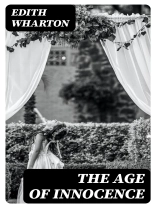Edith Wharton’s ‘The Age of Innocence’ is a masterful exploration of the complexities of societal expectations in the gilded age of New York during the 1870s. Through elegant prose and sharp wit, Wharton intricately weaves a narrative that examines the conflict between individual desire and social obligation, all while capturing the nuances of a rapidly changing society. The novel is characterized by its rich character development, particularly in the portrayal of Newland Archer, as he grapples with his love for the unconventional Countess Ellen Olenska, against the backdrop of rigid conventions that govern upper-class life. Wharton employs a realistic style that underscores the constraints imposed upon individuals, providing a poignant commentary on the interplay between personal happiness and societal norms. Edith Wharton, a member of the elite class herself, draws from her own experiences to craft this incisive critique of high society. Fluent in the cultural and social dynamics of her time, Wharton was acutely aware of the tensions that existed between passion and propriety, leading her to challenge the ideals of fidelity and conformity through this story. Her insightful observations and keen understanding of class structures lend credibility and depth to her characters’ struggles. I highly recommend ‘The Age of Innocence’ to readers who appreciate literature that probes the intricacies of human relationships within the constraints of social structures. Wharton’s timeless exploration of love, duty, and disillusionment resonates even today, making this novel a classic that deserves both admiration and critical exploration.
关于作者
Edith Wharton (1862-1937) was a luminary in American literature, renowned for her keen social insight and portrayal of the upper-class society of the early 20th century. Wharton, born into a wealthy New York family, broke the conventions of her time by becoming one of the first women to achieve fame and respect as a writer. She was not only a novelist but also a short story writer, a designer, and a cultural critic. Wharton’s writing style is characterized by its eloquence, sharp wit, and nuanced examination of the societal mores and personal dilemmas faced by her characters.
Her 1920 novel, ‘The Age of Innocence, ‘ is a masterful exploration of the conflict between personal happiness and social constraints, which won the Pulitzer Prize for Fiction in 1921, making Wharton the first woman to receive this honor. Through books like ‘Ethan Frome’, ‘The House of Mirth’, and ‘The Custom of the Country’, she dissected the intricacies of social status and the roles of women with a critical eye, earning her an enduring place in the canon of American literature. Wharton’s legacy continues to influence writers and readers alike, a testament to the incisive power of her literary voice.












